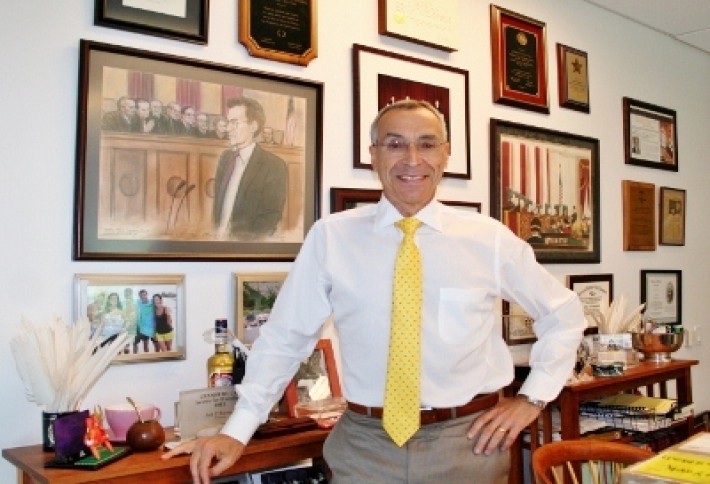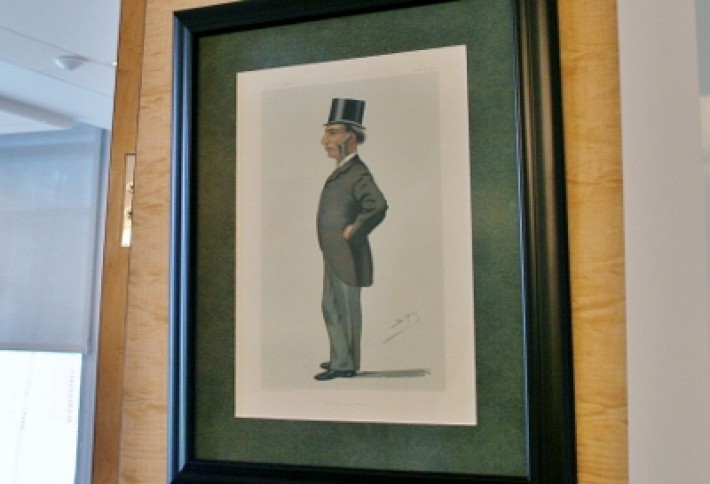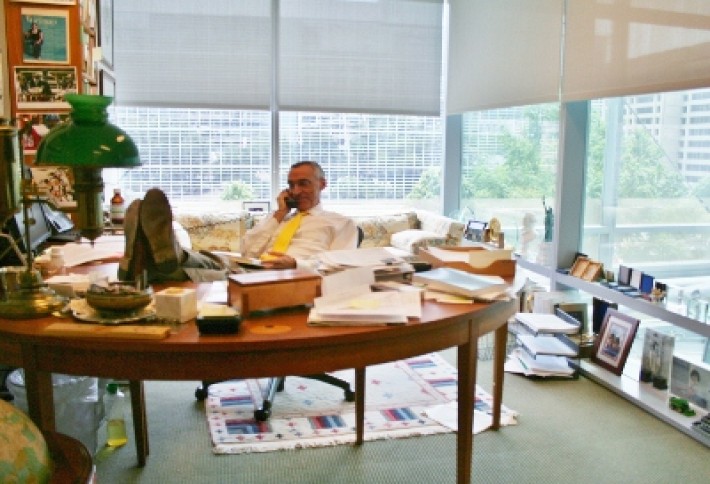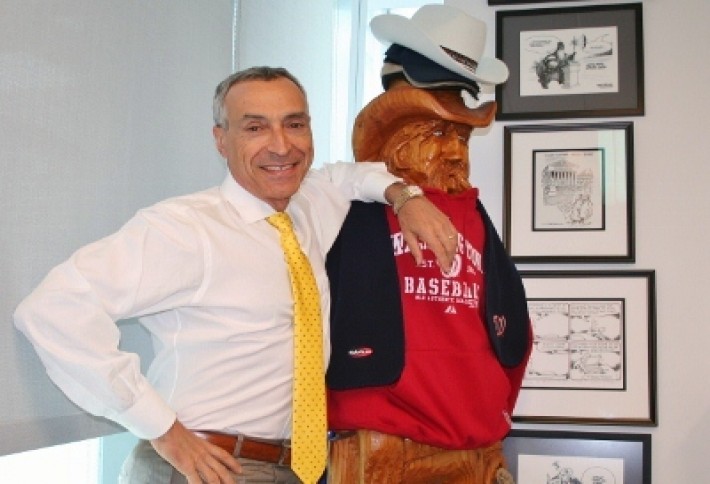Waxman's 65th Argument Before SCOTUS

WilmerHale appellate and Supreme Court litigation chair Seth Waxman recently received a unanimous win in his latest Supreme Court argument, Bowman v. Monsanto. It's his 65th, according to the Clerk of the Supreme Court, William Suter. (That's a name to know for bar trivia. Both as an answer and someone to have on your team.)
Yesterday we snapped Seth, flanked by courtroom sketches and the quills accumulated from each argument before the Nine, in his office at 1875 Penn Ave. (That's right, the Supreme Court gives you a parting gift.) The former US Solicitor General under Clinton says the Monsanto patent victory is "a great relief for the entire biotech industry." The Court ruled that farmers must buy new Monsanto-patented, genetically enhanced soybean seed each year--they can't replant the last year's growth. Otherwise, the hundreds of millions of dollars Monsanto spent developing its Roundup Ready gene would have had to be recovered in the first selling of the seed. The same concept goes for all sorts of easily or massively replicable biotech innovations, Seth says, such as viruses. Monsanto was Seth's first patent client; then-GC Charles Burson had been Al Gore's chief of staff, so when Seth left the US SG position in '01, before he'd joined WilmerHale (or even decided to join a firm), Charles asked if he'd like to consult on some interesting IP issues.
Seth "pleads guilty" to having a role in encouraging the Supreme Court to review more patent cases. Before his term as Solicitor General,the Supreme Court hadn't shown much interest in Federal Circuit's patent decisions. As SG,he noticed cases coming out of the Federal Circuit, some of which he saw as having been decided incorrectly against the government's interests; he petitioned for cert in a couple and won. In recent years, the Court's increasingly granted review of those types of cases, often to overturn them.We're in a "steady state" now of two to four patent cases a term, he says,and that's likely to continue. (Above, an 1881 Vanity Fairprint of "The Solicitor General" hangs outside of Seth's door.)
Seth has more than patent cases. There's the appeal of Rajat Gupta-- convicted last year for insider trading--which Seth argued before the Second Circuit on Tuesday. Two weeks ago, he argued in defense of Google Books against a copyright challenge. He's in litigation for seven cases involving Indian law, and has a petition pending before SCOTUS over an unfair competition case brought by POM Wonderful against Coca-Cola (the Court might hear it next term). He's counsel in an upcoming fall SCOTUS case involving ERISA and aSecond Circuit foreign corporate tax case soon to be briefed and argued; working on campaign finance reform litigation; and advising several universities in ongoing matters. (He also filed an amicus in the pending Fisher affirmative action SCOTUS case on behalf of the eight Ivys and five peer institutions.) "What keeps practicing law interesting is that I rarely do the same kind of case over again," he says. Add on top 300 to 400 pro bono hours per year, including currently repping several prisoners on death row.
It may be hard to see how someone fits all of that in, but Seth saves his downtime: he takes six weeks in the summer to relax and recharge. This year he's taking his wife on a two-week vacation in June to a mystery location (exotic and luxurious has been promised), and spending a month on Martha's Vineyard. Last year after the Vineyard he took his daughter to Japan for two weeks. (His daughter is also the reason behind this wooden figure in his office. More here.) Despite it all, Seth, who participated in the Shakespeare Theatre Company's mock trial of Coriolanus last week--the same day the Monsanto ruling came down--says, "You can always find time to read Shakespeare."




